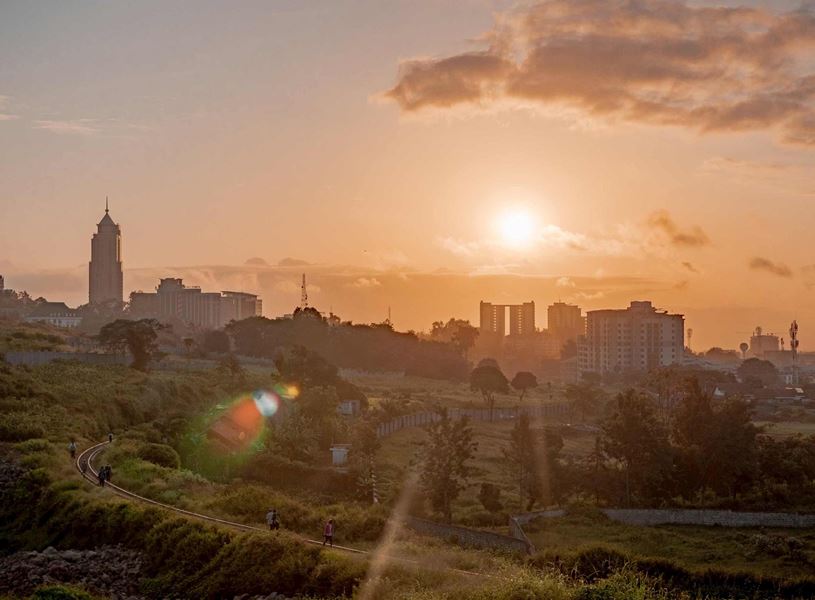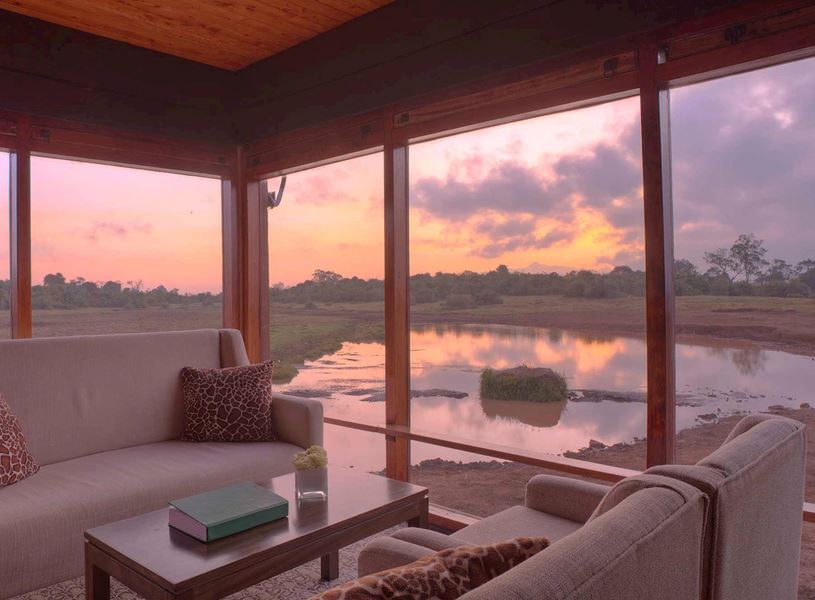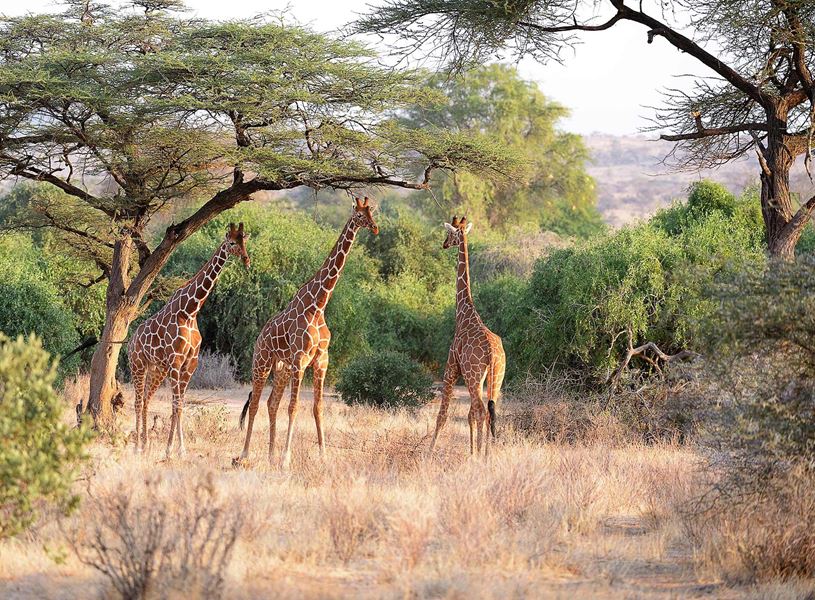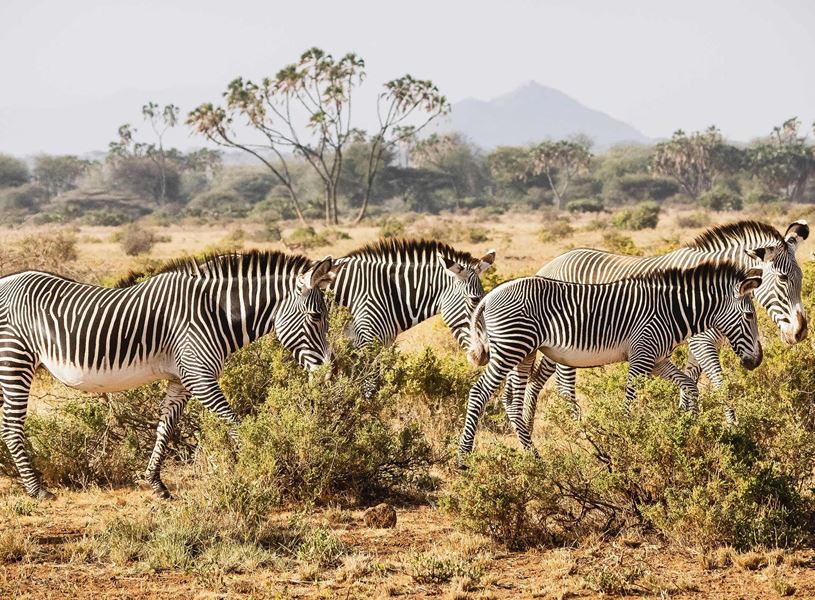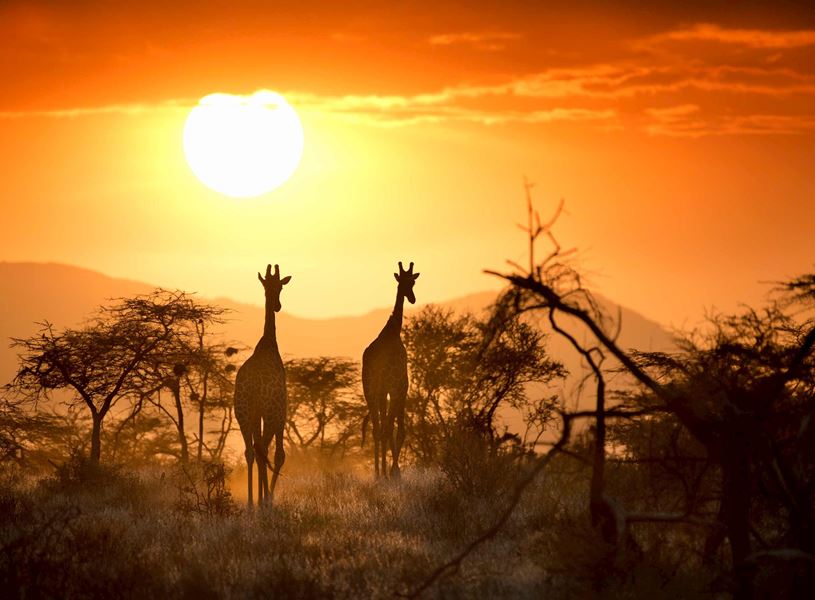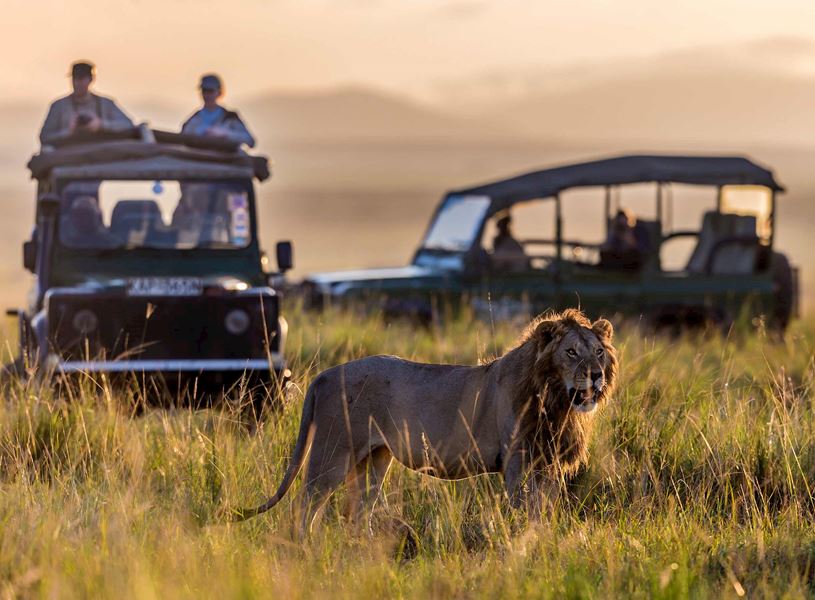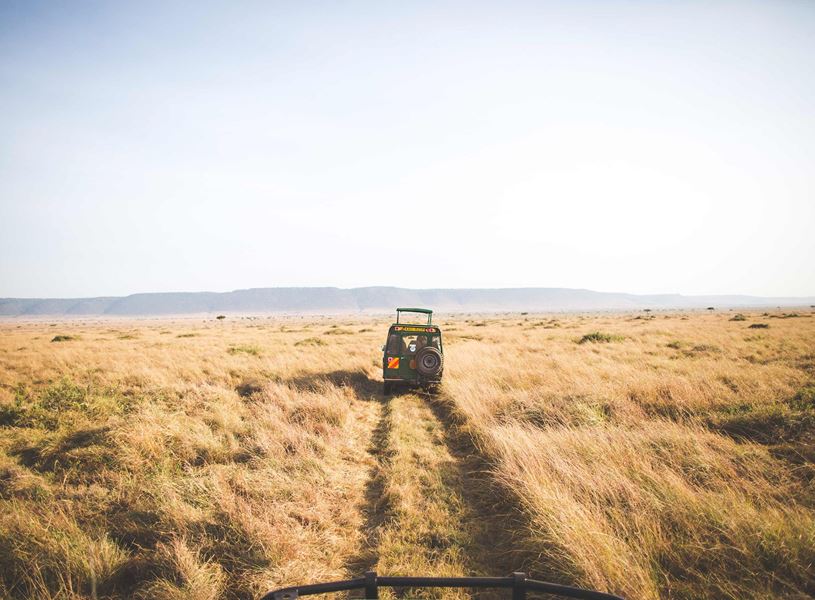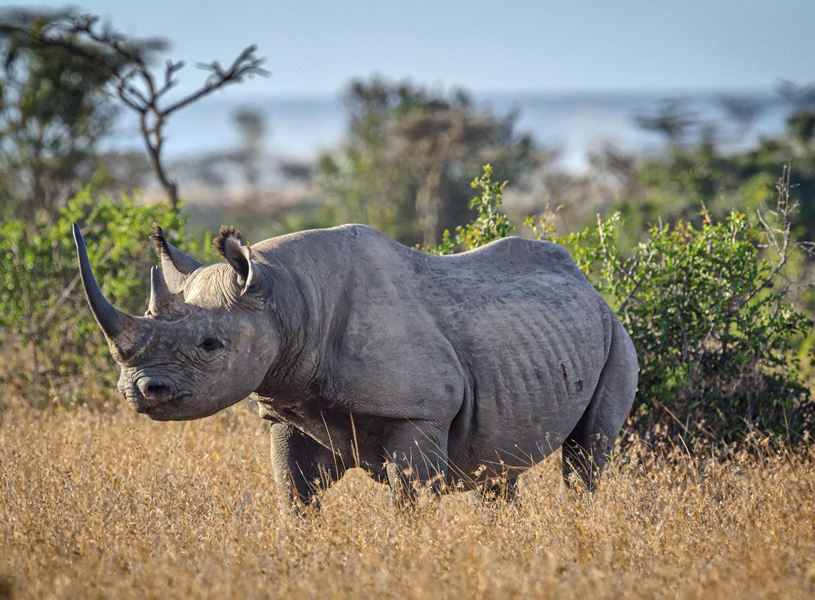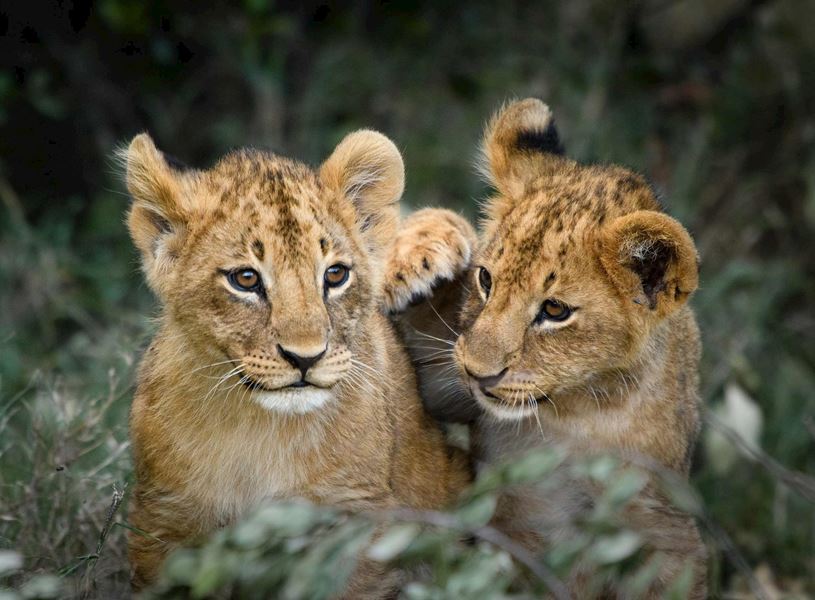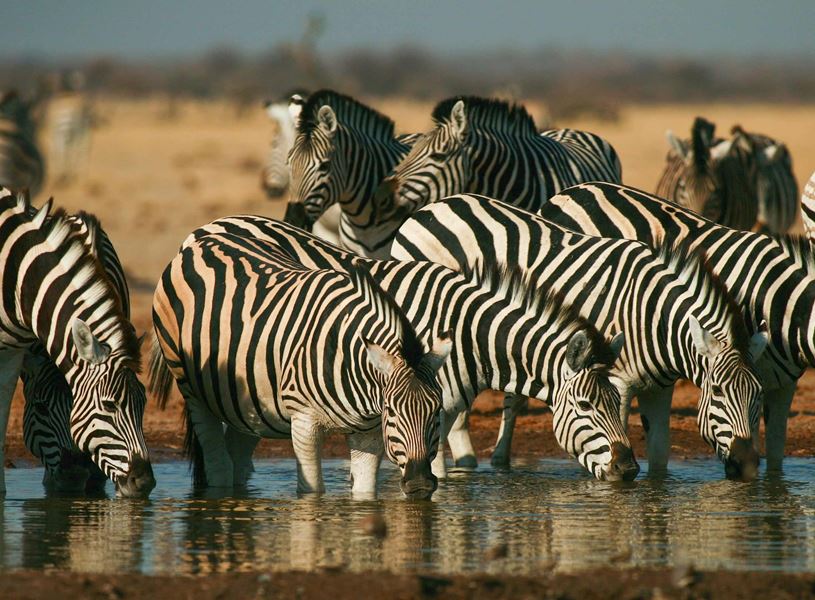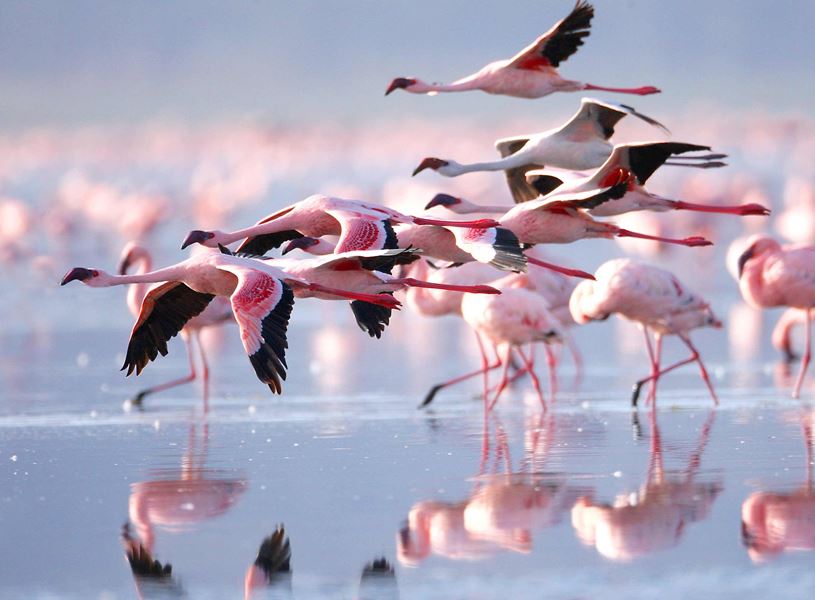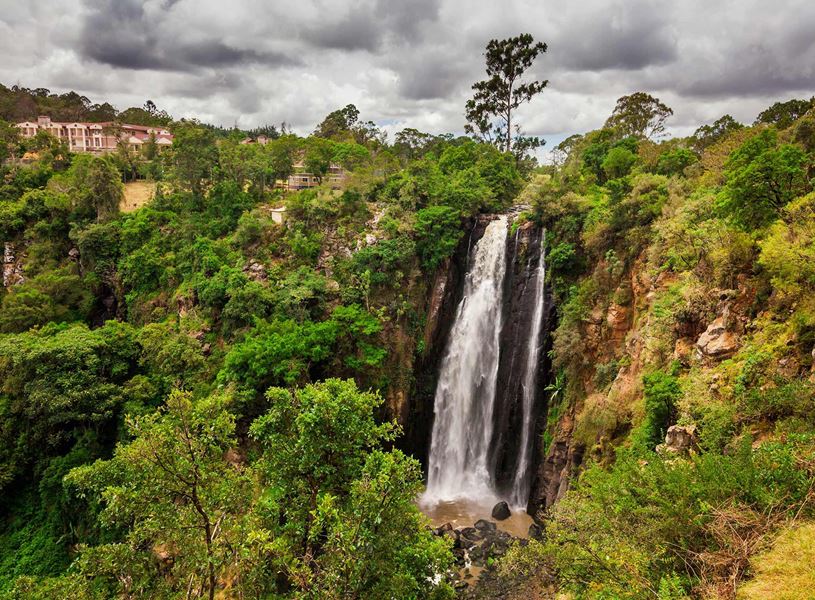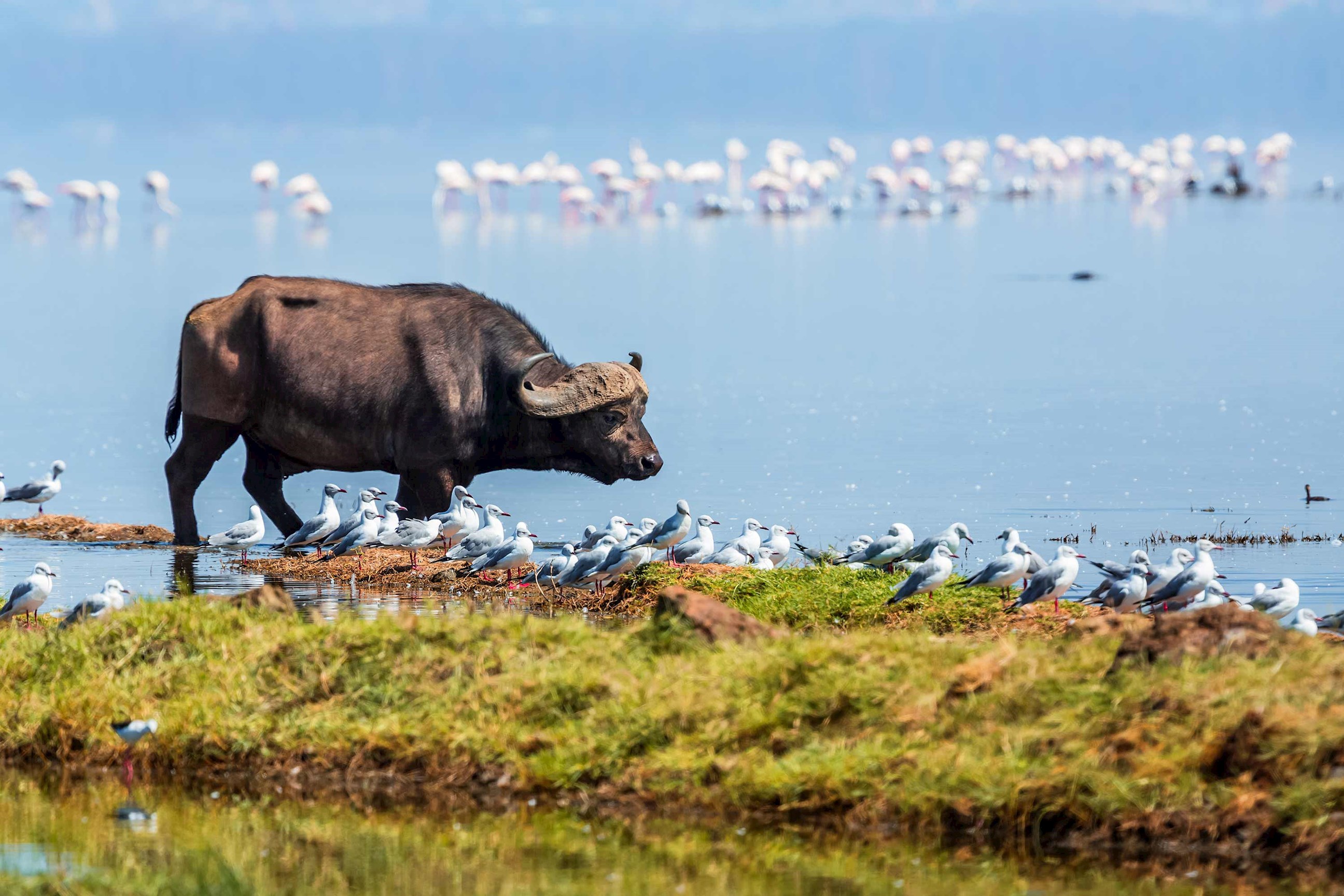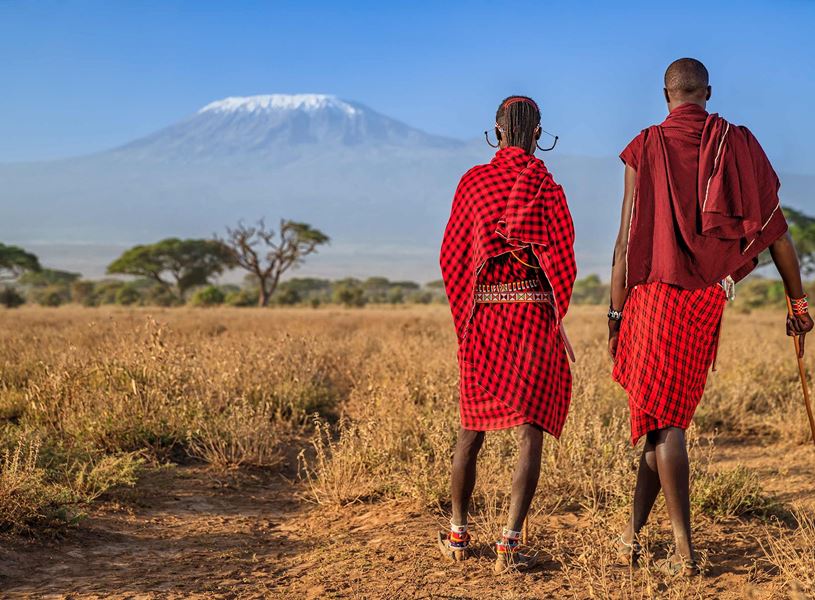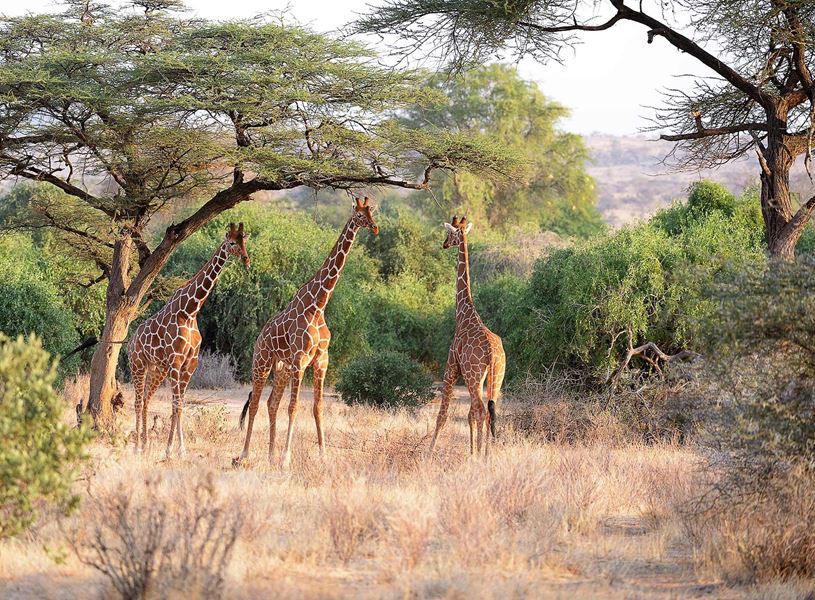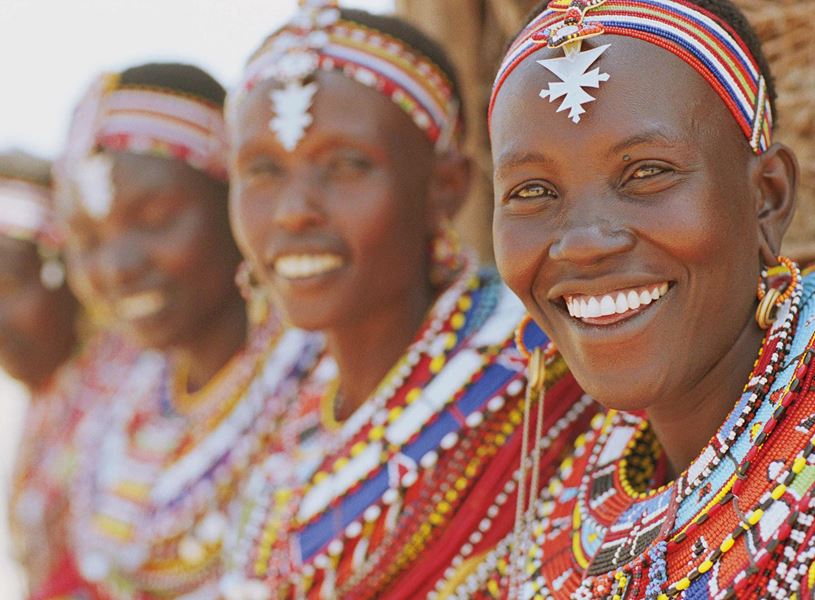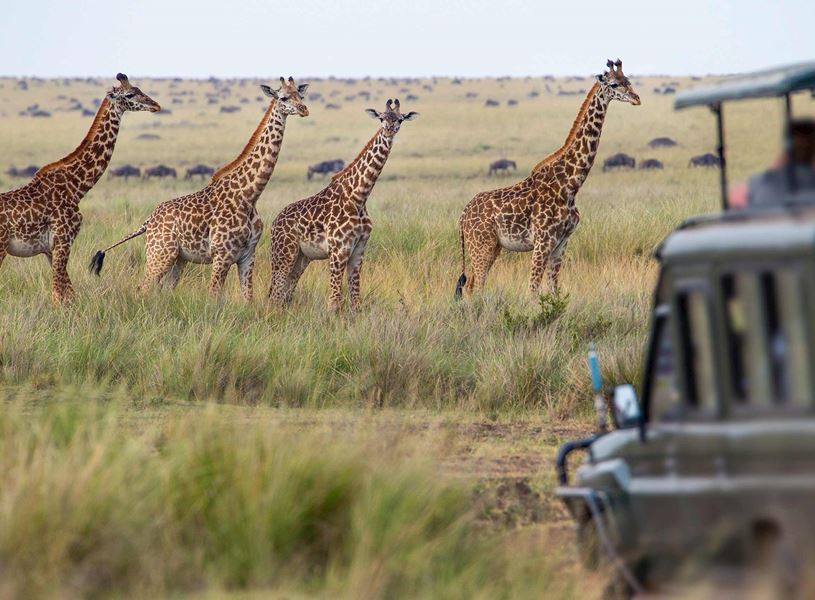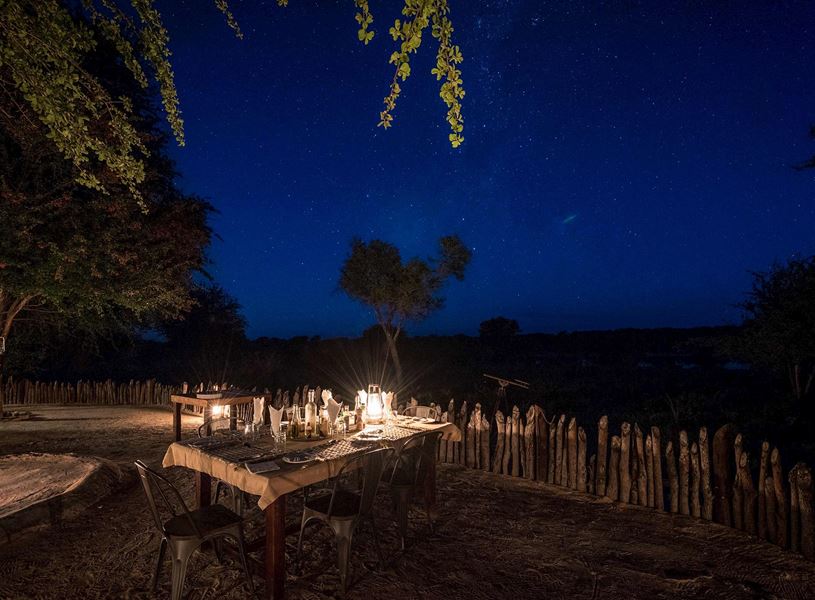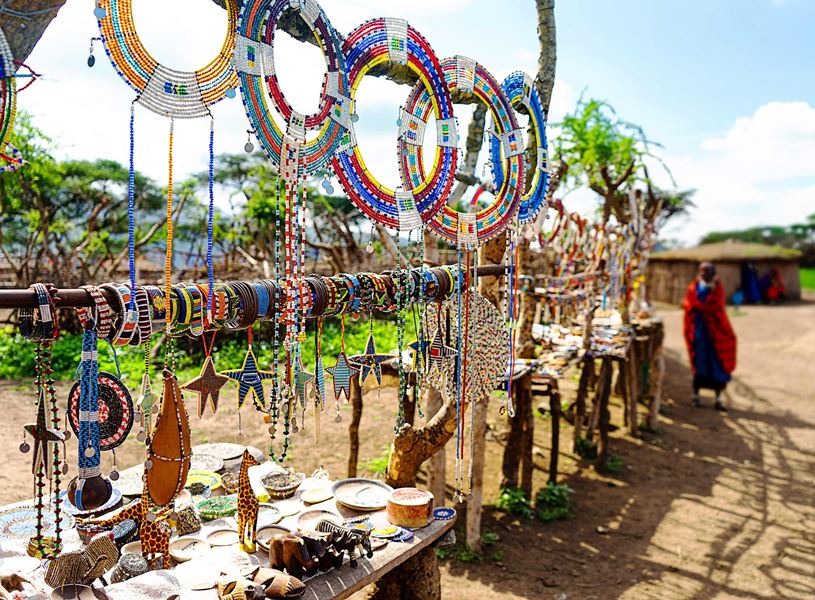
Best Value Tours
If you like hassle free travel with everything handled for you – looking to meet great people, eat great food, enjoy great sightseeing, and have immersive experiences, Trafalgar is for you. From the iconic not-to-be-missed to one-of-a-kind local experiences, including Be-my-Guest dining and stays with stories, you’ll connect deeper to your destination, and every tour has at least one MAKE TRAVEL MATTER immersive impact experience offering you the chance to dive into culture and community.

Safari & Wildlife Tours
Experience the awe-inspiring sight of majestic elephants in the wild, track exotic birds in the depths of the rainforest, or catch a glimpse of playful otters and porpoises cruising through icy waters. Our Safari & Wildlife Vacation collection features unforgettable experiences led by knowledgeable guides and local specialists deeply committed to conservation and wildlife.
View all Safari and Wildlife ToursEmbark on a journey to the enchanting home of the African safari, fiery savannah sunsets and the colorfully clad Maasai—an epic adventure through Kenya’s iconic wilderness.
- Reviews
- 1
- Average group size
- maximum 18
- Best Value Tour by
- Trafalgar
- Travel style
- Safari & Wildlife

Flexible booking 30-day deposit refund guarantee + no change fees See flexible booking terms >
Best Value Why touring is the easiest way to travel Learn more >
Current Entry Requirements Check your destination View Entry Guide >
Select your date
Special Departure
Included Highlights
Top rated highlights
Learn more about the landmarks, history and culture that makes your destination special.
About this trip
What to expect
Optional Experiences
Sign up on tour for additional experiences that have been curated by your Travel Director from their own in-depth local knowledge.
Compare similar tours
Kenya
- Official Languages across Kenya: English and Swahili are the official languages of Kenya.
- Currency used in Kenya: The currency of Kenya is the Kenyan Shilling.
- Capital City:: The capital of Kenya is Nairobi.
- Time Zone(s) in Kenya: East Africa Time (EAT).
Kenya passport, visa, and entry requirement information for US citizens.
- Passport: Your passport should have at least two blank pages for entry stamps. Your passport is valid for at least six months beyond the conclusion of your trip.
- Visa Requirement: A Tourist Visa is required to enter Kenya. Learn more about obtaining a visa for Kenya.
- Entry Requirements: You can see the most up-to-date entry requirements for the destination(s) you’ll visit on tour by going to getours.com/travel-requirements-restrictions.
Twin Room All listed pricing in the brochure and website is per person based on two people sharing a twin room (a room with 2 twin size beds). A double bed can be requested at time of booking if preferred.
Solo Supplement If you are traveling alone and require a single room, there will be an additional Solo Room Supplement added to your price.
Triple Room Rooms that sleep 3 people are available on some itineraries. The third bed is typically a pull out or cot.
Kenya's weather and climate vary significantly across different regions due to its diverse topography. In general, Kenya has two primary seasons: the dry season and the wet season. The dry season typically occurs from June to October, offering pleasant and cooler temperatures, making it an ideal time for wildlife safaris. The wet season occurs from November to May, with the "long rains" from March to May and the "short rains" from November to December. During the wet season, some areas experience heavy rainfall, while others, like the coastal regions, may have more moderate and consistent rain. Kenya's climate allows for a wide range of landscapes, from arid deserts to lush savannas, making it a popular destination for tourists seeking diverse experiences.
Luggage & Carry-On Bag Size Limits for Africa Tours
- Luggage & Carry-On Bag: East Africa safari vehicles cannot accommodate the typical on-tour luggage and carry-on bag dimensions. We kindly ask our guests to travel with a soft-sided bag or medium-sized suitcase.
Baggage allowances vary from airline to airline, and you should check with your chosen carrier for details prior to travel.
Packing Tips for Your Tour
Packing for a safari tour in Africa requires careful consideration to ensure you have everything you need for a comfortable and enjoyable experience in the wild. It's best to travel light and prioritize the essentials. The less you bring, the easier it will be to move around and enjoy the experience without unnecessary weight. The specific items you'll need can vary based on the destination and time of year. Here's a general packing list to get you started:
Passport and Travel Documents: Ensure you have your passport, travel insurance, and any necessary travel documents.
Clothing:
- Neutral-colored clothing: Pack lightweight, breathable, and neutral-colored clothing (e.g., khaki, beige, green) to blend in with the natural environment and avoid attracting insects.
- Long-sleeved shirts and pants: These will protect you from the sun, insects, and any thorny vegetation you might encounter during walking safaris.
- Lightweight jacket or fleece: Evenings and early mornings can be cool, so having a warm layer is essential.
- Wide-brimmed hat and sunglasses: Protect yourself from the sun's strong rays.
- Sturdy, comfortable shoes: Bring closed-toe walking shoes or hiking boots for bushwalks or trekking.
- Sandals or flip-flops: For relaxing around the campsite or lodge.
- Swimwear: Some lodges or camps have pools or natural swimming spots.
- Rainproof gear: Depending on the season and location, rain showers can be common, so a waterproof jacket and pants are useful.
Sun Protection:
- Hat, sunglasses, UV-protective clothing.
- Sunscreen with high SPF. If you're visiting any coastal areas, bring reef-safe sunscreen formulated without harmful chemicals known to be damaging to coral reefs and marine life. Traditional sunscreens often contain ingredients like oxybenzone and octinoxate, which have been found to contribute to coral bleaching and negatively impact marine ecosystems. Look for sunscreens with certifications such as "Reef Safe," "Coral Safe," or "Ocean-Friendly" to ensure they are environmentally friendly.
Medications and First Aid:
- Any prescription medications you need. (See more below under Health & Wellness)
- Basic first aid kit with adhesive bandages, antiseptic wipes, pain relievers, etc.
Toiletries:
- Travel-sized toiletries, including shampoo, conditioner, soap, and toothpaste.
- Travel towel (quick-drying and compact).
- Hand sanitizer and wet wipes.
- A washcloth and carry bag (often not available in hotels abroad).
Electronics:
- Binoculars: Get a good pair for wildlife viewing.
- A camera: You’re traveling on a safari to see extraordinary scenery, animals, and sites. So that you don't miss a single moment, bring a trustworthy camera. Taking pictures of wildlife can be a daunting experience; everything is moving so fast, and the last thing you want is blurry photos to document one of the most extraordinary trips of your life. To get the results you want for your photo album, Instagram account, or Facebook feed, use these tips for taking photos while on safari. No matter what, disable geotagging on all your devices. Posting locations of wildlife can attract poachers, which is probably the last thing you want. Here’s a site that fills you in on how to do this.
- Extra camera batteries and memory cards: You won't want to miss any photo opportunities.
- Mobile phone.
- Chargers for each electronic you bring.
- Travel adapter and/or voltage converter
- Flashlight or headlamp: Useful for navigating in the dark.
- Portable power bank for charging devices on the go.
- Small travel hair dryer (make sure you have the correct converter and adapter).
Miscellaneous:
- A travel-friendly daypack or bag to carry your essentials during excursions.
- Insect repellent.
- Reusable water bottle. At GET, we’re all about caring for our planet, and with that in mind, we always recommend that you pack a reusable water bottle for your trip. Bringing your own reusable water bottle or asking for tap water at restaurants means you can make a difference by reducing your vacation plastic waste.
- A small travel alarm.
Optional:
- Scarf or shawl for visiting religious sites or to cover up in conservative areas.
- Light sleepwear.
- A new, blank journal to document your trip. Don't know your travel journal style? Find out here!
- Ziplock bags (storing snacks, toiletries, and keeping things organized).
Remember to pack light and versatile items that can be mixed and matched for different outfits. Laundry facilities are often available, or you can have your clothes laundered at hotels during your trip. It's also a good idea to pack a small bag or backpack to bring on the coach for day trips and excursions, leaving your larger luggage at the hotel.
Electricity
Most African countries, including South Africa, run on 220-240 volts at 50 Hz. This means that the electrical outlets and voltage used in African countries are different from the standard 110-120 volts at 60 Hz used in the United States.
If you plan to bring American appliances or electronics to Africa, you will likely need a voltage converter and a plug adapter. Here's what you need to know:
- Voltage Converter: American appliances designed to run on 120 volts may not function properly or could be damaged if connected directly to the higher voltage in African countries. A voltage converter (also known as a voltage transformer) will step down the voltage to 120 volts, allowing your devices to work safely.
- Plug Adapter: The physical shape of electrical outlets in African countries may also differ from those in the United States. You'll need a plug adapter to match the American-style plug with the outlets in the destination country.
It's essential to check the voltage and plug type requirements for the specific African country you plan to visit, as they might vary slightly from one country to another. Some modern electronic devices, like laptops and smartphones, are often designed to handle a wide range of voltages, so they might only require a plug adapter. In Kenya, Morocco, and South Africa, the standard electrical voltage is 220-240 volts at 50 Hz. In Namibia, the standard electrical voltage is also 220-240 volts, but it operates at 50 Hz in most areas and at 60 Hz in some regions. If you plan to bring American appliances or electronics to any of these African countries, you will likely need a voltage converter (transformer) as well as a plug adapter.
Before your trip, verify the compatibility of your appliances and devices. You can find this information on the labels or tags of your electronics or in the user manuals. If in doubt, consult with the manufacturer or a qualified electrician.
We suggest buying an adapter with a voltage converter to help reduce the number of things you have to pack. Additionally, it's essential to get any required adapters or converters for your electronic devices before embarking on your guided tour and bringing them along. It's crucial to be cautious when using electrical appliances in foreign countries, as using incorrect voltage or plugs without the right adapters can cause damage to your devices or even pose a safety hazard.
Hair Dryers in Your Hotel
In hotels in Kenya, South Africa, Morocco, and Namibia, you will typically find hair dryers available for guests to use. These hotels are accustomed to hosting international travelers, and providing hair dryers in the rooms is a common amenity. Some remote safari camps may not have the infrastructure or resources to support electrical appliances like hairdryers due to their location in more pristine and wilderness-focused areas.
It is important to keep in mind that the voltage of the hair dryer provided by the hotel will match the local electrical standards of the country where it is located. For example, in Kenya, South Africa, Morocco, and Namibia, the standard electrical voltage is 220-240 volts at 50 Hz. However, some regions in Namibia may operate at 60 Hz.
You will need a voltage converter (transformer) to safely use your own hair dryer or other 120-110 volt appliances you bring. Before using your hair dryer or any electronic device, it is important to verify voltage compatibility and use the appropriate plug adapter if necessary. Although many modern hair dryers are designed to be dual voltage, meaning they can work on both 120 volts and 220-240 volts, it is always recommended to double-check the label or user manual to be sure.
If you are unsure about the electrical compatibility or amenities provided by a specific hotel, you can contact them directly before your trip to inquire about the availability of hair dryers and other electrical considerations for international travelers. If you need a hair dryer during your trip but cannot find one in your hotel room, you can inquire with the hotel staff. Many hotels will be able to provide a hair dryer upon request, either at the front desk or through housekeeping.
Air Conditioning
- Air conditioning is commonly available in various accommodations and public places in Kenya, Morocco, Namibia, and South Africa, especially in urban areas and more developed regions. However, the availability of air conditioning can vary based on the type of accommodation and the specific location within each country. In major cities like Nairobi, Marrakech, Casablanca, Fes, Cape Town, and Johannesburg, many hotels, lodges, and upscale accommodations provide air conditioning. However, in more remote or rustic safari lodges or tented camps, air conditioning might be limited or not available.
Regardless of where in the world your tour visits, we do our best to ensure your transportation is as comfortable as can be. On Africa safaris, you may be on a coach part of the time and a 4 X 4 safari vehicle at other times.
Airport transfers
Transfers will depend on the trip you choose and vary among destinations. In general, if you are joining or departing your guided vacation on the first or last day, return transfers between the airport and hotel are included. You’ll find specific information on your itinerary page.
To enable you to personalize your tour experience, you will find a number of Optional Experiences designed to complement the itinerary. These are designed to offer a deeper insight into the culture and character of the areas to be visited and provide some wonderful highlights to your travels. The optional program is designed to let you experience more of what interests you and to get the most from your vacation without replacing or overlapping with anything included in an itinerary.
The majority of Optional Experiences will be offered to you by your Travel Director at the beginning of your trip. Some may be subject to change, depending on the time you are traveling or local circumstances, including weather and days of the week. Your Travel Director will provide further information.
Usually, most Optional Experiences will be priced in the local currency, but please read through the details of individual optional experiences for specific information. Exact payment options will be advised locally by your Travel Director/Local Representative for each Optional Experience, but in many cases, cash, Visa, MasterCard, and American Express are all accepted.
Traveling to Africa on a guided tour can be an exciting and enriching experience. However, it's essential to prioritize your health and safety while exploring new territories. Health risks can vary based on the specific countries or regions within Africa you are visiting. Staying informed, prepared, and cautious will go a long way in ensuring a safe and enjoyable travel experience. Always stay in touch with your Travel Director and always follow their recommendations.
Here are some health advice and recommendations for travelers heading to Africa:
Visit the Doctor: Before embarking on your trip, schedule a visit with a medicine specialist or your healthcare provider. They can provide personalized health advice based on your medical history, current health status, and the specific countries you'll be visiting.
Travel Insurance: Ensure you have comprehensive travel insurance that covers medical emergencies, evacuations, and trip cancellations.
Vaccinations: While there are no vaccine or testing requirements, travelers should ensure that all routine vaccinations are up to date.
- Routine Vaccinations: These include measles, mumps, rubella (MMR), tetanus, diphtheria, pertussis (Tdap), and influenza.
- Yellow Fever: Some countries in Africa require a yellow fever vaccination certificate for entry. Even if not required, it's highly recommended, as yellow fever is a serious disease transmitted by mosquitoes in some regions.
Malaria Prevention: Malaria is prevalent in many parts of Africa. Consult with your healthcare provider about the appropriate malaria prevention measures, such as antimalarial medications and mosquito bite prevention strategies (e.g., insect repellents, mosquito nets, long-sleeved clothing).
Insect Bite Prevention: Besides malaria, mosquitoes can transmit other diseases like dengue, chikungunya, and Zika. Use insect repellents containing DEET or Picaridin and wear long-sleeved clothing and pants to reduce the risk of bites.
First Aid Kit: Carry a basic first aid kit with essential items like band-aids, antiseptic wipes, pain relievers, antidiarrheal medication, and any prescribed medications.
Stay Hydrated: Drink plenty of water, especially in hot and humid climates, to prevent dehydration.
Respect Local Customs: Be aware of and respect local customs and traditions, as some practices may have health implications.
In order to ensure a healthy and enjoyable trip, we strongly suggest that you pack a plentiful supply of any medication you may need while on vacation. Here’s what you need to know about traveling with medications.
Prior to traveling, please notify GET of any disability requiring special assistance or any specific dietary needs that you may have, and we will strive to accommodate these.
When traveling with GET, baggage handling at hotels, service charges, and tips for hotel wait staff (for included meals) will all be taken care of by your Travel Director. There are, however, a few instances where individual tipping is welcome.
Local Specialists
It is customary to show appreciation for the insights, stories, and know-how shared with you by the Local Specialists, and we suggest a gratuity equivalent to $1.00-$2.00 USD per person per half day.
Your Coach Driver and Travel Director
The trip cost does not include gratuities for your Travel Director and Driver. At the end of your trip, you may express appreciation to your Travel Director and Driver for their excellent service and the personal attention you received. Gratuities are given at the discretion of each guest, and a suggested amount per person/per day is listed in your travel documents.
For your convenience and ease, there is an option to pre-pay gratuities for the Travel Director and Driver at the time of booking.
Hotel services
It is customary to tip hotel staff for room service delivery if the charge has not already been added to the bill. Where ice machines are not available, and you receive ice from the bar, a small tip to the bartender is always appreciated.
Your GET Wishlist
Reviews





